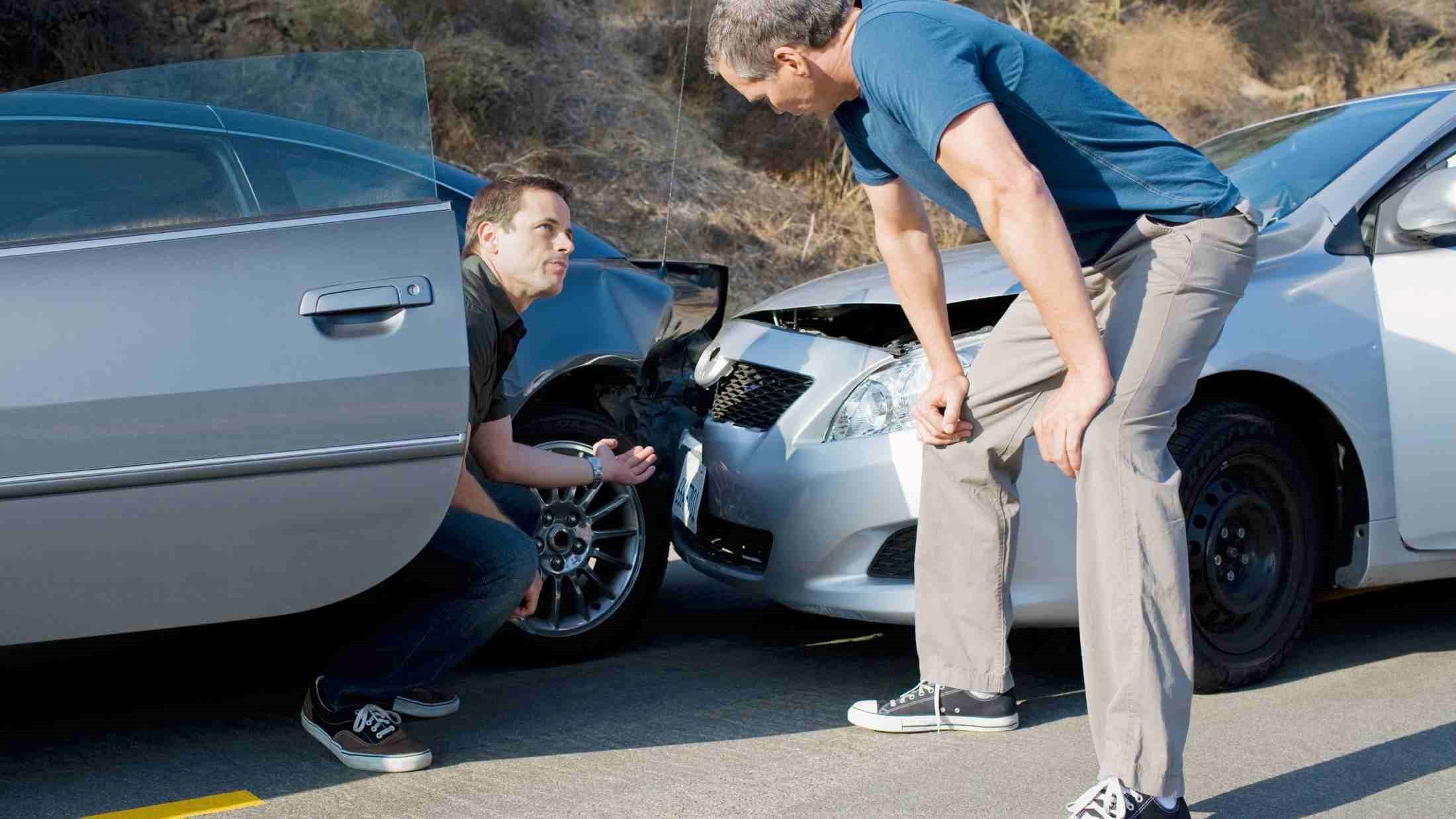If you’re in an accident that’s been caused by another driver, you may think that you won’t have to pay for the damage, and that your insurance premiums shouldn’t be affected. Unfortunately, it’s not always that straightforward – here’s what you need to know in case you’re in an accident that wasn’t your fault, and what it means to make what we call a ‘non-fault’ claim:
- What is the difference between a fault claim and a non-fault claim?
- How do I know if I am at fault for an accident
- Do I need to declare my non-fault accident?
- Does the level of my insurance cover affect my non-fault claim?
- Will making a non-fault claim affect my No Claims Discount (NCD)?
- Do I need to pay any excess if the accident was not my fault?
What is the difference between a fault claim and a non-fault claim?
A fault claim is when you are either considered to be to blame for an accident, or your insurer cannot recover their costs from someone else. A non-fault claim is when you’re involved in an accident that you aren’t to blame for. This means that your insurer can recover the full cost of the claim from the person at fault’s insurance company. In situations where there’s no other person to claim costs back from, like hitting a wild animal or a hit and run incident, you become liable for the accident. Unfortunately, this situation will be classed as ’fault’ claim, as insurers can’t recover the claim costs.
How do I know if I am at fault for an accident?
Before we can decide who is at fault for an incident, there’s several things we need to check, such as information from any drivers involved, witness statements and dashcam footage. This helps us to build a full picture of what’s happened. Your claim can be listed as a ‘fault’ claim either if you were to blame for the incident, or if we’re unable to claim our costs back elsewhere. Somethings you can do which will help your insurer decide who is at fault are:
- Make a note if any traffic laws have been broken – did someone drive through a red light? Was anyone breaking the speed limit? Logging any evidence of these laws being broken can be important to feed back to your insurer to help to inform them of your suspicions support your claim, as these details are often contested or unclear.
- If you have a dashcam, save the footage of the incident. Video evidence of an accident will give your insurer an essential view of what happened.
- Take photos of the incident. Log evidence of any damage on all vehicles involved the aftermath of the incident and any skid marks on the road or other environmental impacts of the accident, like if there was debris on the road or damaged trees. This will help the insurance company to decide who is at fault.
- Did anyone see the incident? Getting statements from witnesses who saw the incident will also be vital when making your claim. Make sure you also get contact details from witnesses as your insurer may need to contact them about your claim.
- A driver giving an apology for an incident or making a statement like “I didn’t see you” can be seen as an admission of guilt and therefore, liability. If you believe you’re not at fault for an accident, be careful of what you say to other parties and make a record of any apologies made.
In the end, your insurer will decide who is at fault and whether or not the claim is non-fault.
Do I need to declare my non-fault accident?
Yes – you must declare a non-fault accident, even if the other person offers to pay for damages and you end up not making a claim on your insurance.
Does the level of my insurance cover affect my non-fault claim?
Fully comprehensive insurance will cover you for all damage to your car regardless of whether the claim is fault or non-fault. If it is non-fault your insurer will recover their costs from the at fault insurer. If you don't have comprehensive cover, you won't be able to claim from your own insurer, but you should be able to claim against the insurer of the person at fault.
Why not check out AXA’s fully comprehensive car insurance and get a quote?
Other essential information about non-fault claims
Will making a non-fault claim affect my No Claims Discount (NCD)?
No - a non-fault claim shouldn't affect your NCD as long as your insurer can recover any costs they pay out. However your NCD may be temporarily reduced while the claim is being looked into. If it is settled as non-fault your NCD will be restored. You should check with your insurer to see how non fault claims affect your insurance.
Do I need to pay any excess if the accident was not my fault?
Usually yes. You’ll still need to pay the excess, even if it wasn’t your fault. In some situations, an insurer may not apply the excess, but this is unusual. Once it’s been decided by your insurer that the accident wasn’t your fault, you’ll get your excess back.
Now that you know all about what a non-fault claim means and how it can affect you, get a quote for AXA Car Insurance and protect yourself today.












